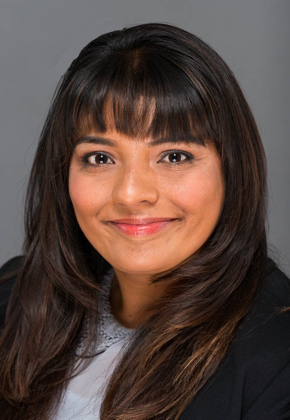I had the pleasure of interviewing Arnaud Salomon, who is now one of the leading Fintech and blockchain figures in Switzerland thanks to his two breakthrough initiatives in these domains: Mt Pelerin, a revolutionary bank on blockchain project, and ibani.com, a borderless money exchange and transfer service
Thank you so much for doing this with us! What is your “backstory”?
Thank you for having me! I am a Swiss and French citizen but my parents moved around the world for work, so I grew up in several countries from India to Czech Republic. During the 90’s, I grew up in Prague where at age 16 I started my own business, building and selling computers, often riding a cab to deliver them. Since my early life, with friends and family spread over several countries, I have faced the challenge of dealing with multiple currencies. In those days, it was both cheaper and more efficient to move money between countries by physically carrying cash and depositing it in the destination country. I remember travelling with my parents when I was a kid, and they used to stuff my pockets with cash to get across borders. The alternative was a bank transfer, which would be painfully slow and expensive. Dealing with these frustrating and absurd inefficiencies naturally gave me a desire to challenge them, and I developed a strong libertarian spirit along the way.
I later settled in Lausanne to study at the Swiss Federal Institute of Technology, and then I started my professional career as a commodity and FX trader. In 2012, I discovered Bitcoin and the blockchain, and I immediately became an enthusiast. The opportunity represented by the birth and growth of this new world pushed me to launch my own startup in 2014 with the mission to bring the benefits of new technologies to the ageing world of banking and finance. I started working on the basic and still unsolved issue of currency exchange and cross-border transfers. Now I’ve moved on to the next challenge, a much more ambitious project to revolutionize banking through blockchain technology.
Can you share the funniest or most interesting story that happened to you since you began leading your company?
In 2014, as a Fintech startup we constantly had to fight to exist, explain our activities, our mission and our expertise. People were suspicious, and even opening a business bank account was a real challenge that took months to solve as we were facing highly reluctant bankers.
A few years later, the blockchain and cryptocurrencies came under the spotlight, Fintech became a hot domain to invest in, and the old financial world started to wake up. In the meantime, our work and determination had earned us the reputation of blockchain leader in Geneva, and from that point things got reversed.
Today, we have private banks and other large financial institutions knock on our door on a regular basis with lots of interest and requests. They want us to present to their teams what we are doing, they want us to explain how tokenization can be applied to their business, they want to discuss technology partnerships, they want cost-down and optimization consulting, and so on. More than anything else, they want to benefit from our due diligence process for crypto fund origin and AML documentation, as they are very eager to onboard new crypto UHNW clients. Ironic, isn’t it ?
What do you think makes your company stand out during these disruptive times? Can you share a story?
We are living in disruptive times indeed, but until now we haven’t seen much real disruption in the banking industry. In other spaces, the major disruptors have usually started by operating new business models in legally grey zones, allowing them to exploit a competitive advantage and quickly grow to a size where legal issues could then be dealt with.
However, banking suffers from extremely strict regulations, and trying to bypass them and operate in a grey zone to bring innovation can result in jail time. That fact has protected the industry from major market disruption until now.
Today, we are witnessing a unique opportunity embodied by a shift in political mindsets, with regulations being somewhat softened and barriers to entry being progressively lowered. Switzerland happens to be spearheading this legal and regulatory breakthrough for the industry, embracing blockchain technology and welcoming innovative startup business models.
Let’s take an example from the European Union: PSD1 and PSD2 have forced banks to open their business activities to Fintech companies and led banks to become more of a backbone of finance while allowing Fintechs to play the client-facing role. Although Switzerland has not adopted PSD 1 / 2 nor an equivalent, Mt Pelerin strongly believes in this trend and the new models of banking it will foster, and we plan on offering a plethora of innovative and efficient services to match today’s customer needs. We are eager to integrate, interface and collaborate with all kinds of incumbents and Fintech companies, so our customers can get the best services from specialists in each area of finance, and our core banking system is being built with that in mind.
Technology and regulation are ripe for a paradigm shift in the banking industry, and Mt Pelerin has geared up to grab this opportunity. We are bringing our vision to life in the form of the very first bank to be built on blockchain from the ground up. We propose a whole new business model that will connect all the dots out there today to offer a reliable and compliant bridge between the crypto economy and traditional finance, a safer and cheaper bank for depositors, and an open marketplace platform enabling an unprecedented access and liquidity to all types of investment opportunities through asset tokenization.
What advice would you give to other CEOs or founders to help their employees to thrive?
I would recommend to surround yourself with experts in their respective domains, and empower them with responsibility and accountability. I look for people that are smarter than myself in their own space, and give them authority on it. Steve Jobs said it so well: “It doesn’t make sense to hire smart people and then tell them what to do. We hire smart people so they can tell us what to do.” Also, don’t limit yourself or your employees to a single skill, learn from each other and help wherever you can. At Mt Pelerin, each and everyone, including myself, is in charge of their specific domain whilst working as a team to build up the project, unified by our strong and shared vision.
None of us are able to achieve success without some help along the way. Is there a particular person who you are grateful towards who helped get you to where you are? Can you share a story or example?
That is most certainly true, and I am particularly grateful to my team, who joined this project and worked relentlessly with unbelievable dedication, based on their firm conviction of Mt Pelerin’s values and mission.
I am also infinitely grateful towards our community, who has been following us since the birth of the project with unwavering enthusiasm. That support has clearly played a major role in our ability to progress and stay focused on our goals daily.
Can you share what you believe will be the “Top 5 Fintech and Banking Trends Over The Next 3 Years” (Please share a story or example for each.)
These are what I feel will be the 5 main upcoming trends in our space, and which I believe will spur innovation into banking and Fintech in the near future:
1. Overhauling traditional business models, leading to a greater specialization of companies.
2. More customer centric models, adapted to modern societal aspirations.
3. Competitive pricing driven by digitalization and improved efficiency, along with a desire and capacity for more transparency.
4. An increasing number of marketplaces for products and services, with specialists working side-by-side to provide tailor-made solutions to discerning users.
5. A focus on values, replacing loyalty to a single brand or to the lowest price with inclination for a set of values represented by a given service or product.
I believe that these trends will bring more and more specialized intermediaries on the market with thinner margins, as well as more open platforms and infrastructures that will drive more competitive prices.
Of course, at Mt Pelerin we believe that blockchain technology plays a key role in making these objectives possible, and will bring deep change all the way down to the roots of the banking industry. We are heralding these trends ourselves, building an innovative banking ecosystem that will answer the needs of 21st century customers.
Incumbents will have a hard time adapting to the fundamental evolution of the market pushed by societal changes and modern customer behaviors. I don’t think that we will see big names of the industry disappear in the short term, but we will definitely see some of the best in class come up with initiatives to adapt to the market, and we will also see some of the less proactive incumbents bleed out, slowly in the beginning, as their customers start to turn to new and more immediately adequate solutions.
One of our objectives is to connect all of the good actors of this market and offer a marketplace where all can thrive and offer an overall better service to customers, in an inclusive and borderless perspective.
Can you please give us your favorite “Life Lesson Quote”?
There are many inspiring quotes that come to mind, and I would be tempted to quote Milton Friedman or Friedrich Hayek. But instead I’ll give you what I consider my personal motto, and a driving force throughout the Mt Pelerin project:
Nothing is impossible, everything is accessible, always keep learning.
You are a person of great influence. If you could inspire a movement that would bring the most amount of good to the most amount of people, what would that be? You never know what your idea can trigger. 🙂
I feel like what we are doing at Mt Pelerin for the banking space, and what we did with ibani.com for cross-border money could be applied to other spaces with tremendous benefits to society. Blockchain technology enables unprecedented decentralization and opens the door to entirely new business models. With the help of such technology, we are at the dawn of an era where borders get less and less meaningful, or at least they are getting to be less of a limiting factor. And within those borders, inequalities and political inefficiencies can also be mitigated or even erased if we find the correct way to apply these new and fascinating tools. I hope our work will inspire some talented entrepreneurs to pursue universality and fairness in other spaces as well.


